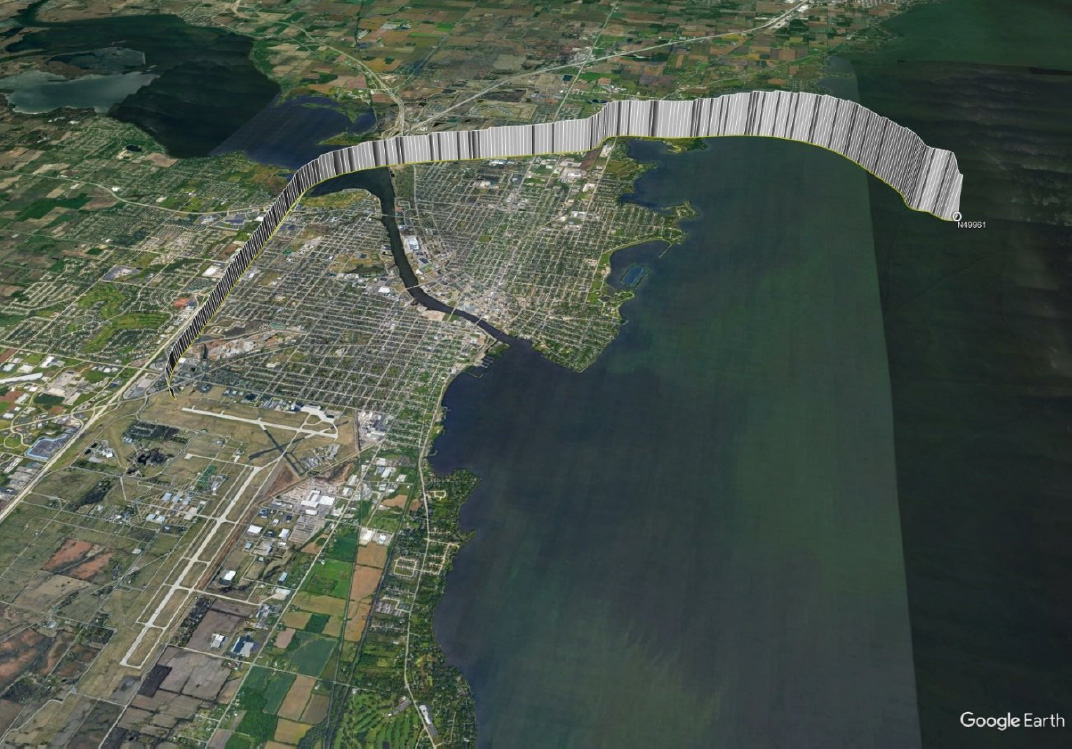The National Transportation Safety Board (NTSB) announced Aug. 20 that it concluded that the probable cause of a fatal warbird crash that killed pilot Devyn Reiley, 30, and passenger Zach Colliemoreno, 20, during the Experimental Aircraft Association’s (EAA) AirVenture 2023, was pilot error.
On July 29, 2023, Reiley’s North American AT-6D took off westbound from Wittman Regional Airport at 8:57 a.m. and reached a peak altitude of 3,900 feet. The aircraft then executed a right turn followed by a left turn. During these maneuvering turns, the plane’s airspeed critically decayed from 110 mph to 87 mph before it dropped rapidly and crashed into Lake Winnebago eight minutes after takeoff.
The Warbird broke apart and sank in 20 feet of water. According to the NTSB’s examination of the wreckage, there were no preimpact anomalies found in the airplane, engine or related systems that would have prevented normal operation, thereby ruling out mechanical failure. The report noted that officials did toxicology testing on the pilot, an experienced Warbird pilot with over 600 hours of experience, and did not identify any impairing substances.
Based on the available information, the NTSB determined that Reiley “likely failed to maintain adequate airspeed while maneuvering and exceeded the airplane’s critical angle of attack,” resulting in the plane going into an aerodynamic stall.
A witness on a boat corroborated this finding by describing the plane being in a flat spin immediately prior to impact.
The NTSB report highlighted a common risk in aviation: during steep turns or abrupt maneuvering, airspeed can decay and load factors increase, which in turn raises the aircraft’s stall speed. The report stressed that accelerated stalls and spins remain a significant hazard, particularly when they occur at low altitude where there may not be sufficient height for recovery.










